Eraserhead (1977)
“Mary tells me you’re a very nice fellow.”
|
Synopsis: |
|
Genres, Themes, Actors, and Directors:
Response to Peary’s Review: Peary discusses this iconic film at greater length in his first Cult Movies book, where he notes that it’s “unpleasant and often repellent, but all the while it is riveting and fascinating, not unlike sideshow acts at the carnival. It is cruel and sadistic, but has moments of compassion and humor; is about all things alien, but about things that ring a responsive chord; is full of images that are in themselves ugly or bland, yet… everything is touched with beauty.” He describes Henry’s apartment building as “the type… one fears ending up in when stranded in a strange town after all the decent hotels have closed down,” and points out that “Henry’s room is worse than depressing” given that “his one window faces a brick wall.” When Henry “visits his plain-looking, shabbily dressed girlfriend, Mary X, in a scene that outdoes every awful boyfriend-meets-girlfriend’s family sequence you’ve seen (or experienced),” we undergo a “painful excursion into black comedy” which includes a “man-made chicken which spurts awful slime and moves by itself” for dinner. Suffice it to say that every element of Lynch’s vision defies easy explanation and leaves us “never (mentally) finished ‘working out’ [the] film, never through thinking about it.” Note: Citing a critic from The Village Voice, Peary describes Henry and Mary’s mutant baby as “a mewling, eye-rolling first cousin to the skinned rabbit from Repulsion (1965)” — which is absolutely, freakily accurate. Redeeming Qualities and Moments:
Must See? Categories
(Listed in 1001 Movies You Must See Before You Die) Links: |
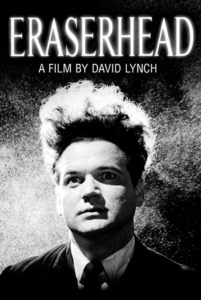
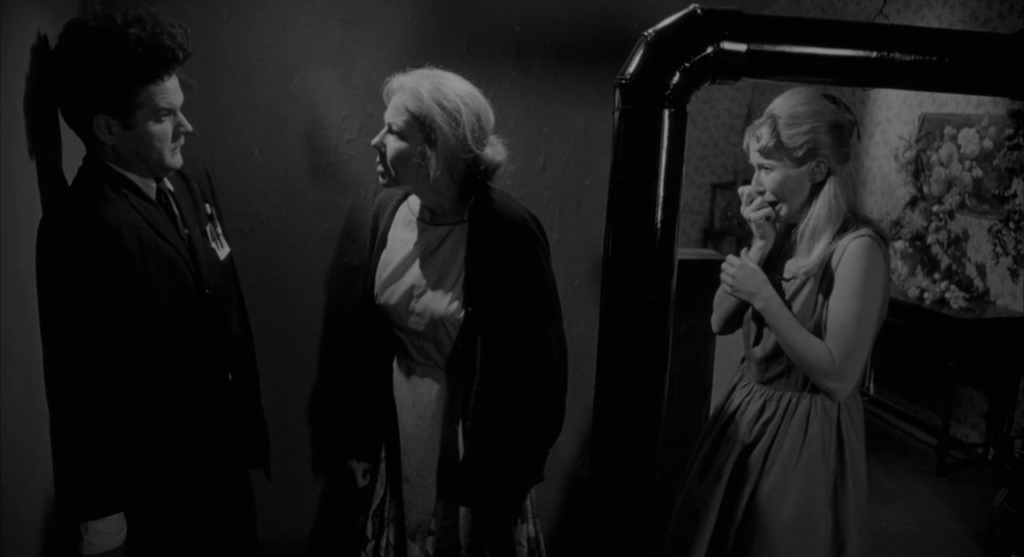
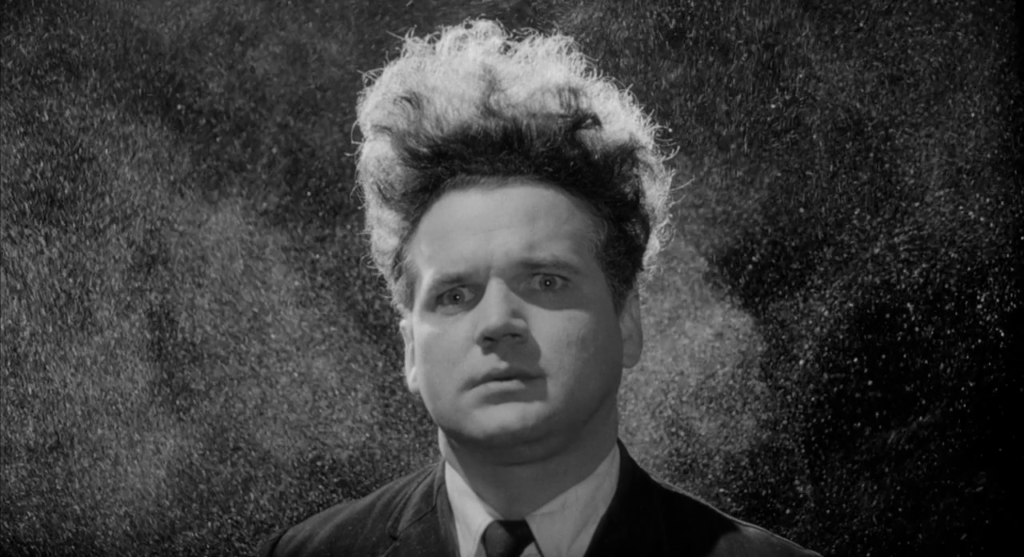

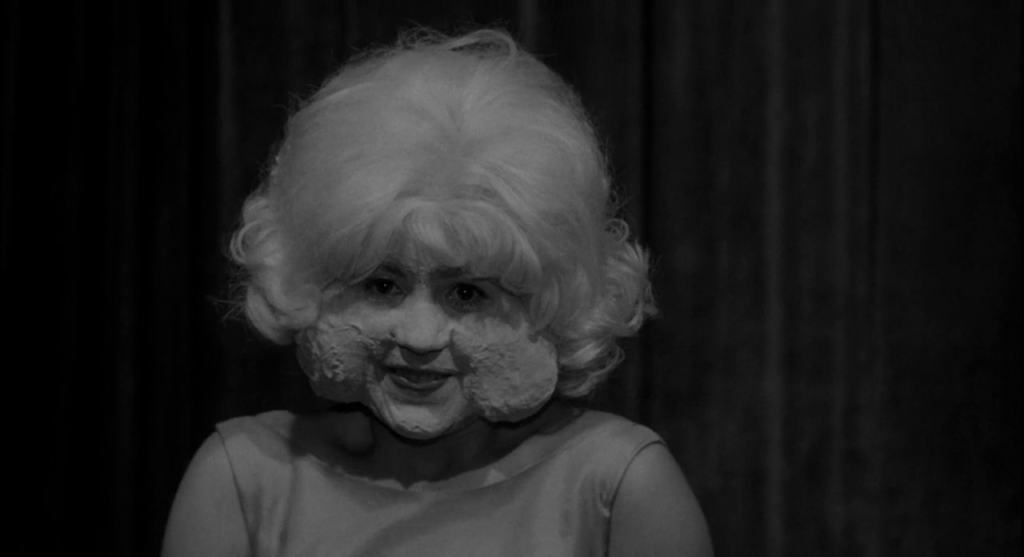
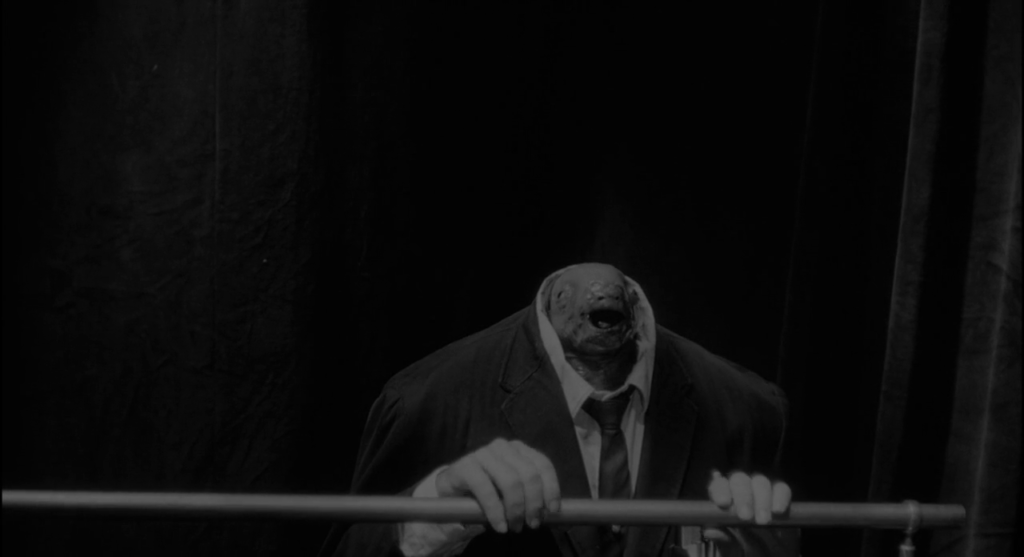
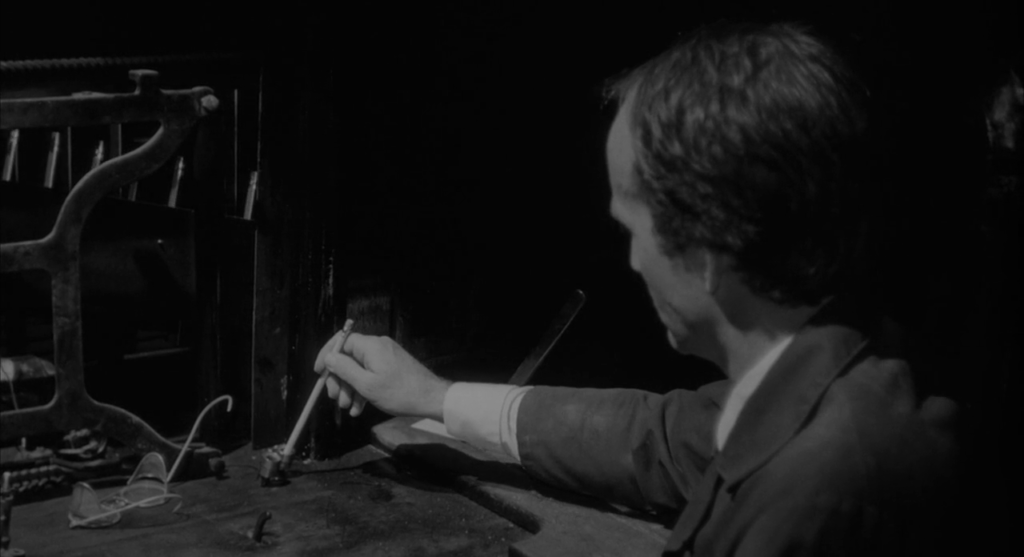
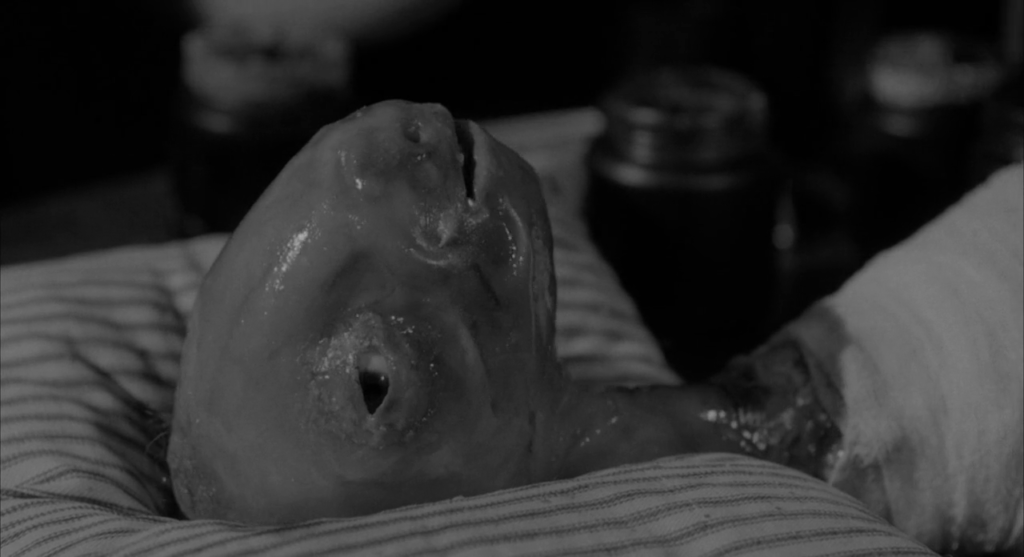
2 thoughts on “Eraserhead (1977)”
⭐️⭐️1/2 out of ⭐️⭐️⭐️⭐️
A hard film to endure as it’s so oblique, so weird, so nasty … so very Lynchian but without much cohesive narrative. I’m not a fan at all finding it all deliberately obscure and maddening.
But, it’s a significant film of one of the most influential auteurs working in US cinema and TV so is a must see for FFs.
Not must-see.
Having just more or less rewatched this (after many years; I skipped ahead sometimes to avoid falling asleep), I can’t bring myself to agreeing it’s something that all film fanatics should (frankly) torture themselves with.
Hardcore cult film fans will want to check it out, though.
When Peary describes it as either “black comedy” or “riveting” (or even “brilliant”), I can’t agree. I see it more as an affront to audiences; almost as though the film doesn’t care whether you like it or not. Its tone, its rhythms, its indulgence in the inexplicable – all of these make the viewing experience more of a chore than anything else.
Lynch would go on to do better work – some of which is must-see.